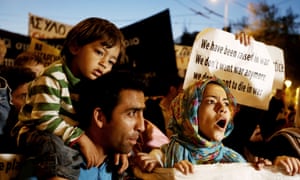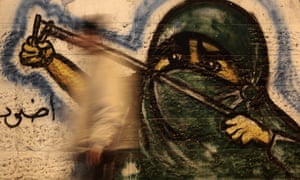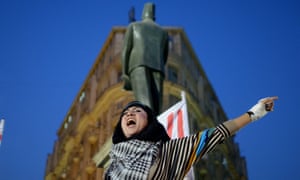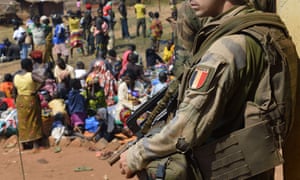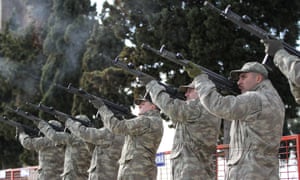Indian Prime Minister Narendra Modi will round up his trip to Brussels and Washington with a visit to Saudi Arabia on April 2 and 3, on his way back home. His visit comes at a time when the Gulf region is absorbing the ramifications triggered by falling oil prices. Uppermost in his mind is the fact that India gets its energy from Saudi Arabia and other Gulf Cooperation Council members. In the last decade, India’s political, economic and security relations have strengthened with the Kingdom. He will also be seeking a firsthand account of the situation in the battle against Daesh and the ongoing conflict in Syria and Yemen.
Beginning with King Abdullah’s visit to India in 2006 and Prime Minister Manmohan Singh’s return visit in 2010, relations between the two countries have touched new heights. From a past when Riyadh was seen as supporting Pakistan, (though thousands of Indian workers were in Saudi Arabia even then), and political relations were lukewarm, ties are now thriving. They are set to improve further with across-the-board cooperative ventures which may well be on the anvil after this meeting.
Decision by the Saudi authorities to deport Abu Hamza, an Indian national wanted for the Mumbai terror attacks, was a turning point in Kingdom-India ties on the security front. Another wanted terrorist Abu Sufiyan was handed over in December 2015, while another suspect was given a one-way ticket in February 2016. “These are some examples in which Saudi security agencies have looked after our core interests on security matters,” Mridul Kumar, joint secretary (Gulf) in the MEA has said on the eve of the historic visit.
The new areas of cooperation are clearly security, counterterrorism and defense. In fact, India and Saudi Arabia now have close security and anti-terror cooperation, and have excellent political and economic ties.
The strategic partnership agreement signed during Singh’s visit to Saudi Arabia set the framework for cooperation between the two countries. Modi’s visit will further consolidate those ties. Saudi Arabia is the fourth largest trade partner for India and it has around 2.9 million Indians working in the country.
Saudi Arabia is also a major investor in India and looking more and more toward investing in joint ventures. Prime Minister Modi’s talks with Custodian of the Two Holy Mosques King Salman will also focus on such investments and India will wish to reassure Saudi business per se that the climate for investment in India is just right. If Modi can find support for his ‘Make in India’ project, he will be only too pleased.
Travel between the two nations will also see a spurt with medical and health tourism being a big draw for Saudi families to India. Education will be another area for mutual enterprises whether it is in setting up institutes in Saudi Arabia or dispatching students to Indian varsities.
Discussions will also be held over the current conflict against the Daesh and the advances made by the coalition in subduing the militant group.
Modi might also seek some reassurances that the slowing of the Gulf economy would not hit India where it hurts most: in remittances and jobs. There are eight million Indian workers in the area, who send home between $35 and $40 billion each year. Though there has so far been no significant drop in remittances, the fear is that if this continues, many foreign workers will have to leave the region.
States like Kerala, Andhra and Tamil Nadu are heavily dependent on these inflows from their hard working work force. Kerala alone had 2.5 million workers in the region.
In the last few years, apart from the blue collared workers, there are large numbers of Indians in well-placed jobs and in business in the region. As of now there has been no major dip in remittances, but if the slowdown continues, it will certainly affect the flow.
It would help Modi’s image a great deal on the home front if he was to bring some good cheer to the migrant population from these states.
On a personal level, the Indian PM has met King Salman on two occasions and still gratefully acknowledges the latter’s help over a call to rescue Indian nationals stranded in war-torn Yemen. The Kingdom led the successful evacuation of Indians and people of other nationalities and brought them to safety.
Saudi Arabia has also expressed its desire to upgrade relations and take them beyond the standard “strategic partnership” stage.
Modi has expressed his desire to “expand and deepen our bilateral relations.”
The prime minister has maintained that one of the key objectives of his visit will be to convince prominent Saudi businesses to partner with India’s development priorities.
Beginning with King Abdullah’s visit to India in 2006 and Prime Minister Manmohan Singh’s return visit in 2010, relations between the two countries have touched new heights. From a past when Riyadh was seen as supporting Pakistan, (though thousands of Indian workers were in Saudi Arabia even then), and political relations were lukewarm, ties are now thriving. They are set to improve further with across-the-board cooperative ventures which may well be on the anvil after this meeting.
Decision by the Saudi authorities to deport Abu Hamza, an Indian national wanted for the Mumbai terror attacks, was a turning point in Kingdom-India ties on the security front. Another wanted terrorist Abu Sufiyan was handed over in December 2015, while another suspect was given a one-way ticket in February 2016. “These are some examples in which Saudi security agencies have looked after our core interests on security matters,” Mridul Kumar, joint secretary (Gulf) in the MEA has said on the eve of the historic visit.
The new areas of cooperation are clearly security, counterterrorism and defense. In fact, India and Saudi Arabia now have close security and anti-terror cooperation, and have excellent political and economic ties.
The strategic partnership agreement signed during Singh’s visit to Saudi Arabia set the framework for cooperation between the two countries. Modi’s visit will further consolidate those ties. Saudi Arabia is the fourth largest trade partner for India and it has around 2.9 million Indians working in the country.
Saudi Arabia is also a major investor in India and looking more and more toward investing in joint ventures. Prime Minister Modi’s talks with Custodian of the Two Holy Mosques King Salman will also focus on such investments and India will wish to reassure Saudi business per se that the climate for investment in India is just right. If Modi can find support for his ‘Make in India’ project, he will be only too pleased.
Travel between the two nations will also see a spurt with medical and health tourism being a big draw for Saudi families to India. Education will be another area for mutual enterprises whether it is in setting up institutes in Saudi Arabia or dispatching students to Indian varsities.
Discussions will also be held over the current conflict against the Daesh and the advances made by the coalition in subduing the militant group.
Modi might also seek some reassurances that the slowing of the Gulf economy would not hit India where it hurts most: in remittances and jobs. There are eight million Indian workers in the area, who send home between $35 and $40 billion each year. Though there has so far been no significant drop in remittances, the fear is that if this continues, many foreign workers will have to leave the region.
States like Kerala, Andhra and Tamil Nadu are heavily dependent on these inflows from their hard working work force. Kerala alone had 2.5 million workers in the region.
In the last few years, apart from the blue collared workers, there are large numbers of Indians in well-placed jobs and in business in the region. As of now there has been no major dip in remittances, but if the slowdown continues, it will certainly affect the flow.
It would help Modi’s image a great deal on the home front if he was to bring some good cheer to the migrant population from these states.
On a personal level, the Indian PM has met King Salman on two occasions and still gratefully acknowledges the latter’s help over a call to rescue Indian nationals stranded in war-torn Yemen. The Kingdom led the successful evacuation of Indians and people of other nationalities and brought them to safety.
Saudi Arabia has also expressed its desire to upgrade relations and take them beyond the standard “strategic partnership” stage.
Modi has expressed his desire to “expand and deepen our bilateral relations.”
The prime minister has maintained that one of the key objectives of his visit will be to convince prominent Saudi businesses to partner with India’s development priorities.
